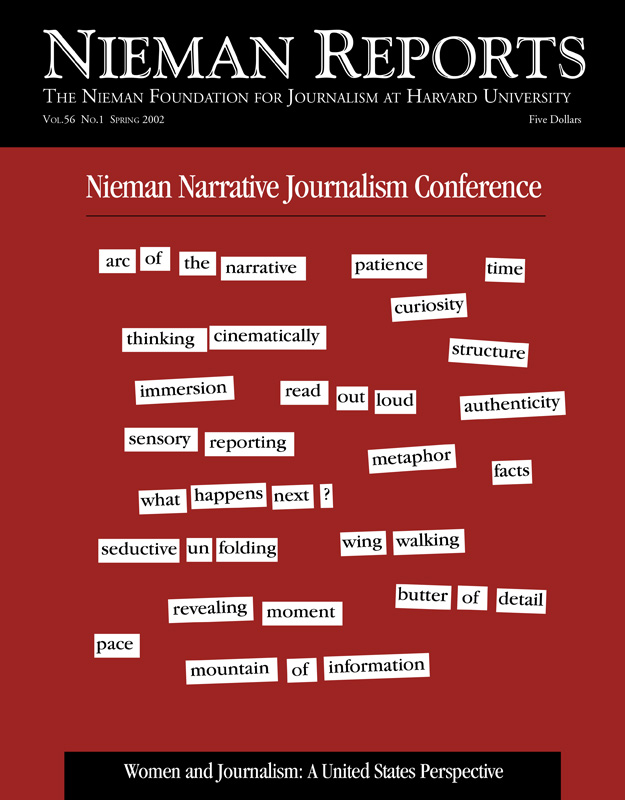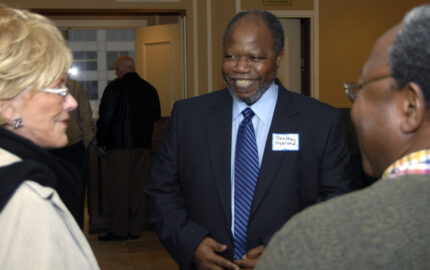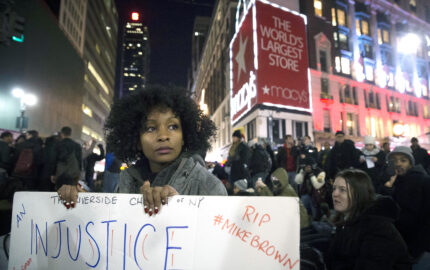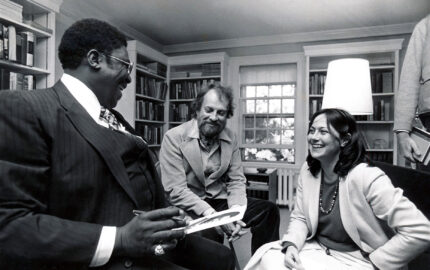The September 11 attacks against the United States and the subsequent American-led war against terrorism have comprised one of the top news stories of recent decades. During the past seven months of my Nieman Fellowship, though, I’ve had to adjust to the novel challenge of not writing or commenting about a news story and a political dynamic that normally would have consumed my professional life and much of my personal life, as well. Being on the sidelines and looking in has been difficult, but the perspective it has given me has been rewarding.
As an Arab (Palestinian-Jordanian) and an American national whose life has been defined by professional interaction between the Arab and Western worlds, this story goes to the very core of my identity and working life. It is all about identity and mass sentiments in the Arab-Asian region; the interplay between religion and politics; relations between Islam and the West; the cultural and political contests within the Arab-Asian region; the modern history of American-Arab interaction, and communication and miscommunication between these worlds. Yet, as this extraordinary story unfolded, I wasn’t able to pursue my normal routine. Usually, I’d be writing a weekly syndicated column, talking with guests on my television interview show, and working on freelance articles and op-ed pieces for the international press.
Initially, I was frustrated at being journalistically shackled by the terms of the fellowship at such an historic moment. But that sentiment quickly gave way to an important realization that proved far more significant to me, personally and professionally: I was reminded again how important it is for a journalist to listen, without writing or commenting. I also learned, for the first time, how important it is to take a pause in our profession to assess what we do, why we do it, and where we hope to go. What I have discovered is that the Nieman Fellowship is not so much about our learning new things about the world around us, but rather it is an opportunity to define values and directions for us, as journalists, and for the person within us.
I’ve discovered this year that the art of listening is among a journalist’s greatest assets. Perhaps this approach should be incorporated more deliberately into journalism education and training. Because I’m not writing my syndicated column, I don’t have to summarize my thoughts each week and package them in an 800-word bundle of analysis, opinion, reporting and entertainment. Unconstrained by such deadlines, while at the same time challenged to deal with the many complex dimensions of the September 11 attack and its aftermath, I find myself listening more deliberately and intently than I have before as I try always to hear, digest and analyze what others are saying.
There is no shortage of opinion in my encounters with others in my daily life, or in the mass media. Much of what I’ve heard is impressive, though some ideas have seemed bizarre and comical. But it is all instructive. I now appreciate and respect more the journalist’s responsibility of synthesizing the many opinions in society and of accurately reflecting the variety of ideologies and perspectives that exist in any society. Listening more intently and carefully gives me a much better understanding of the society around me than I would have had if I’d been in my regular routine. Suddenly, what I think becomes less pertinent every Tuesday—the day I’d usually write—when I don’t have to put these thoughts on paper as I’ve done for the past 20 years. I am grateful to the Nieman Fellowship for reminding me of this.
This awareness also seeps into my personal journey, as I pause and reflect on my work and career path. At its most immediate level, the luxury of a year at Harvard is defined by the astounding bounty of courses, lectures, discussions and new friendships. At a deeper level, it offers moments for serious, if relaxed, introspection. I understand now, as I didn’t when I came here, why the Nieman Fellowship requires that journalists stop what they normally do. This suspension of the daily journalistic routine allows the time and space for pondering why I do what I do.
When I resume my career, it will be with a different approach to the issues I deem important and the media that I find most enjoyable and satisfying. I intend to devote more time to exploring the interaction of history, religion, identity and culture and will devote more time to radio and international syndication in an attempt to foster improved intercultural communication.
There are, perhaps, many people who are glad I was kept quiet for this year. And now that I’ve experienced the benefits of a more quiet and humble profile, count me among them.
Rami G. Khouri is a 2002 Nieman Fellow. In Amman, Jordan, he is a syndicated columnist and freelance TV and radio host.



